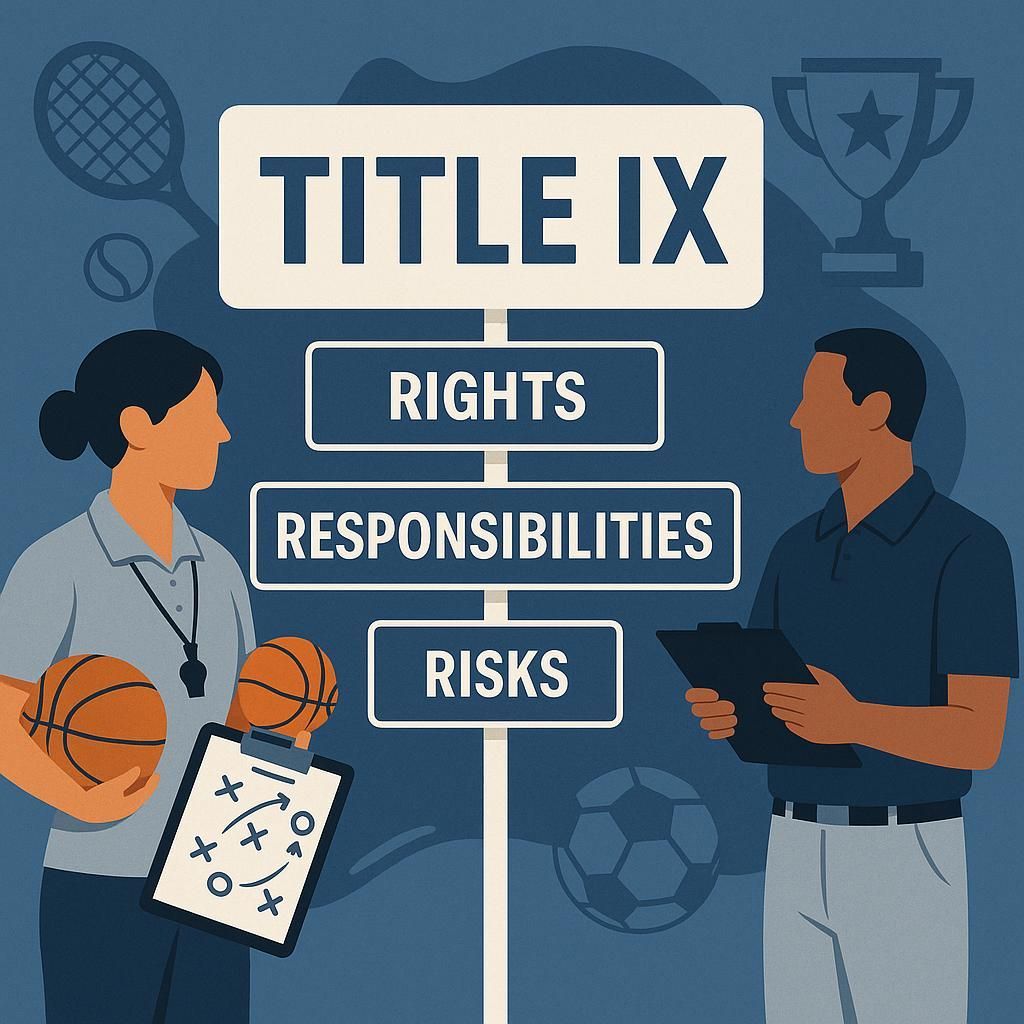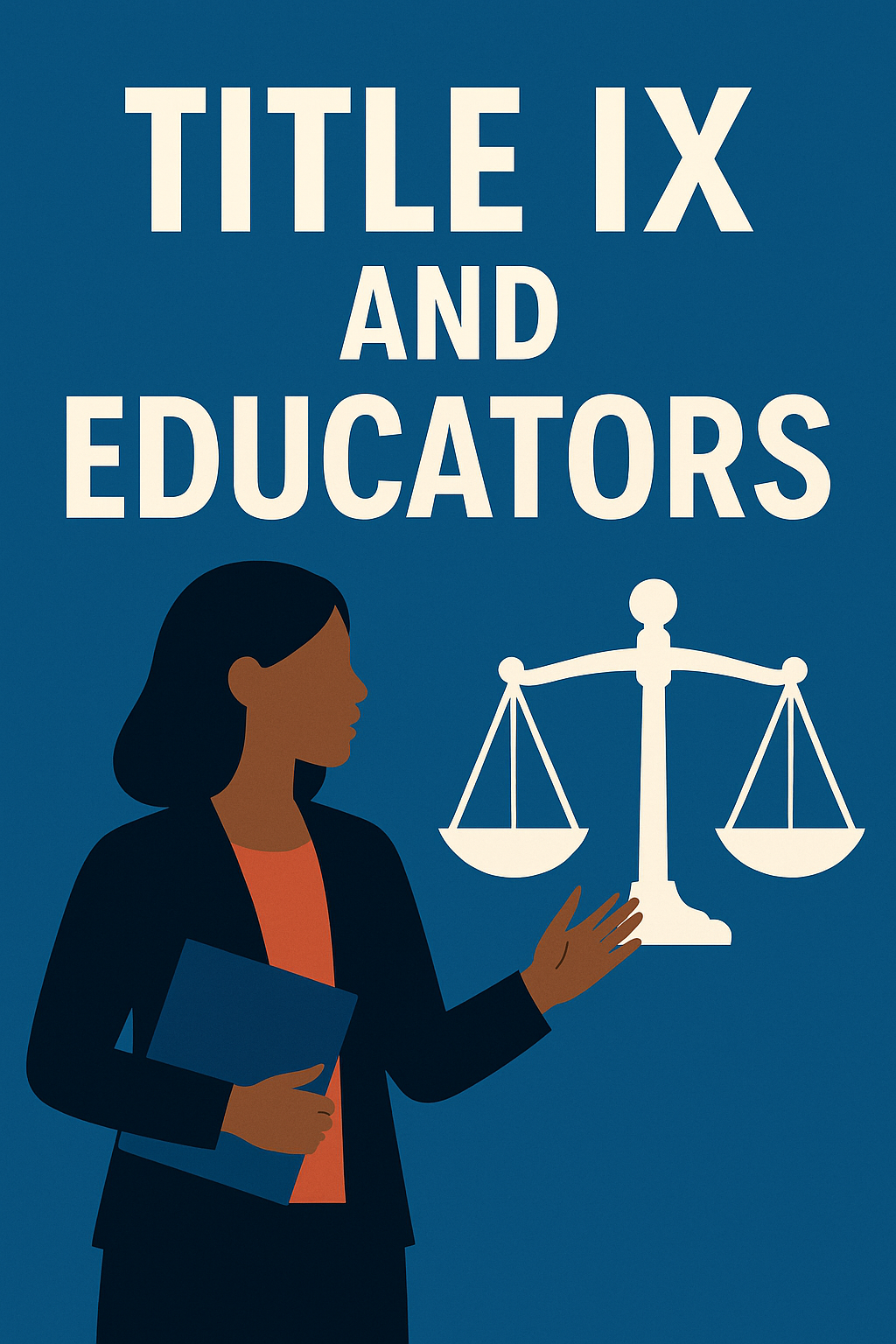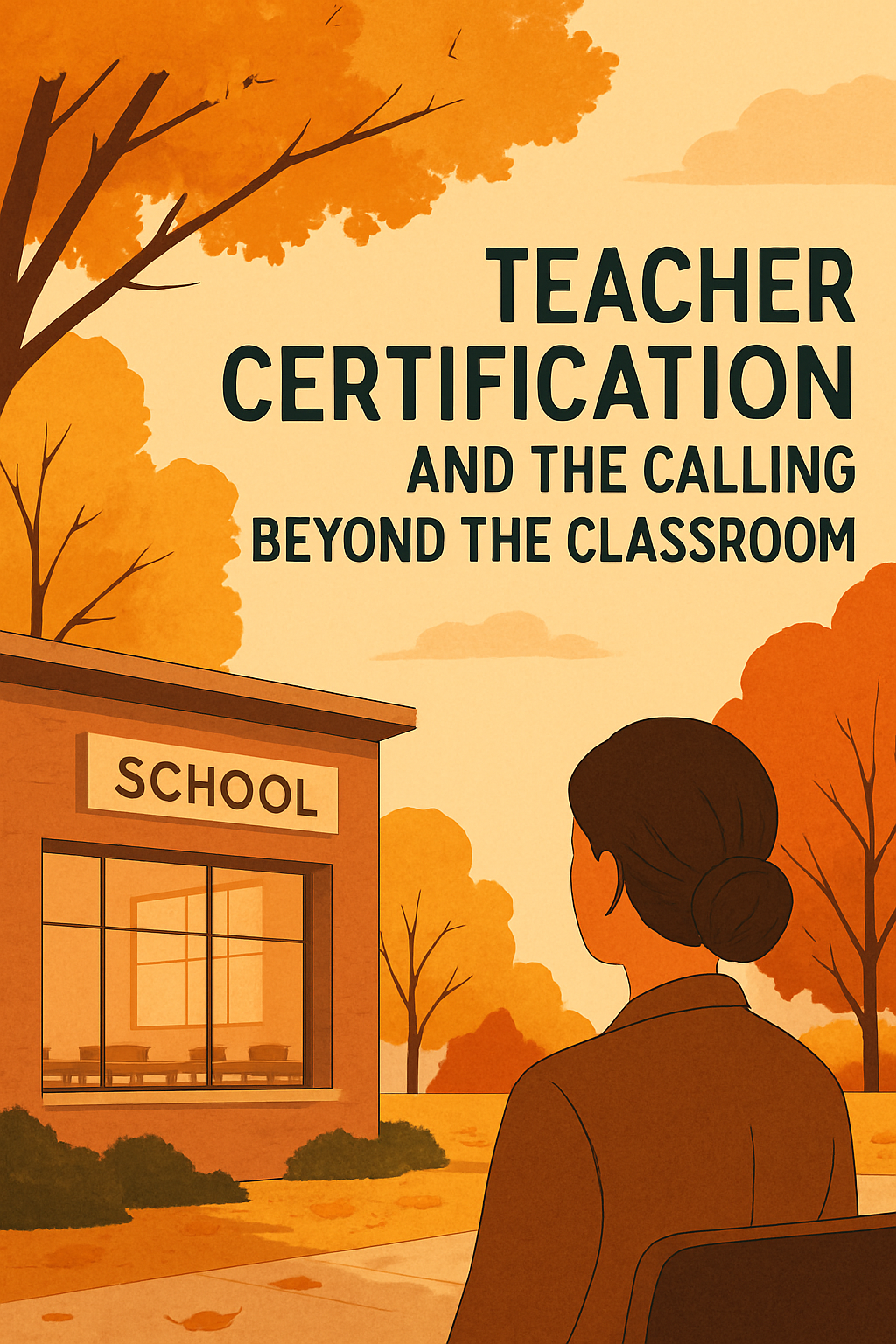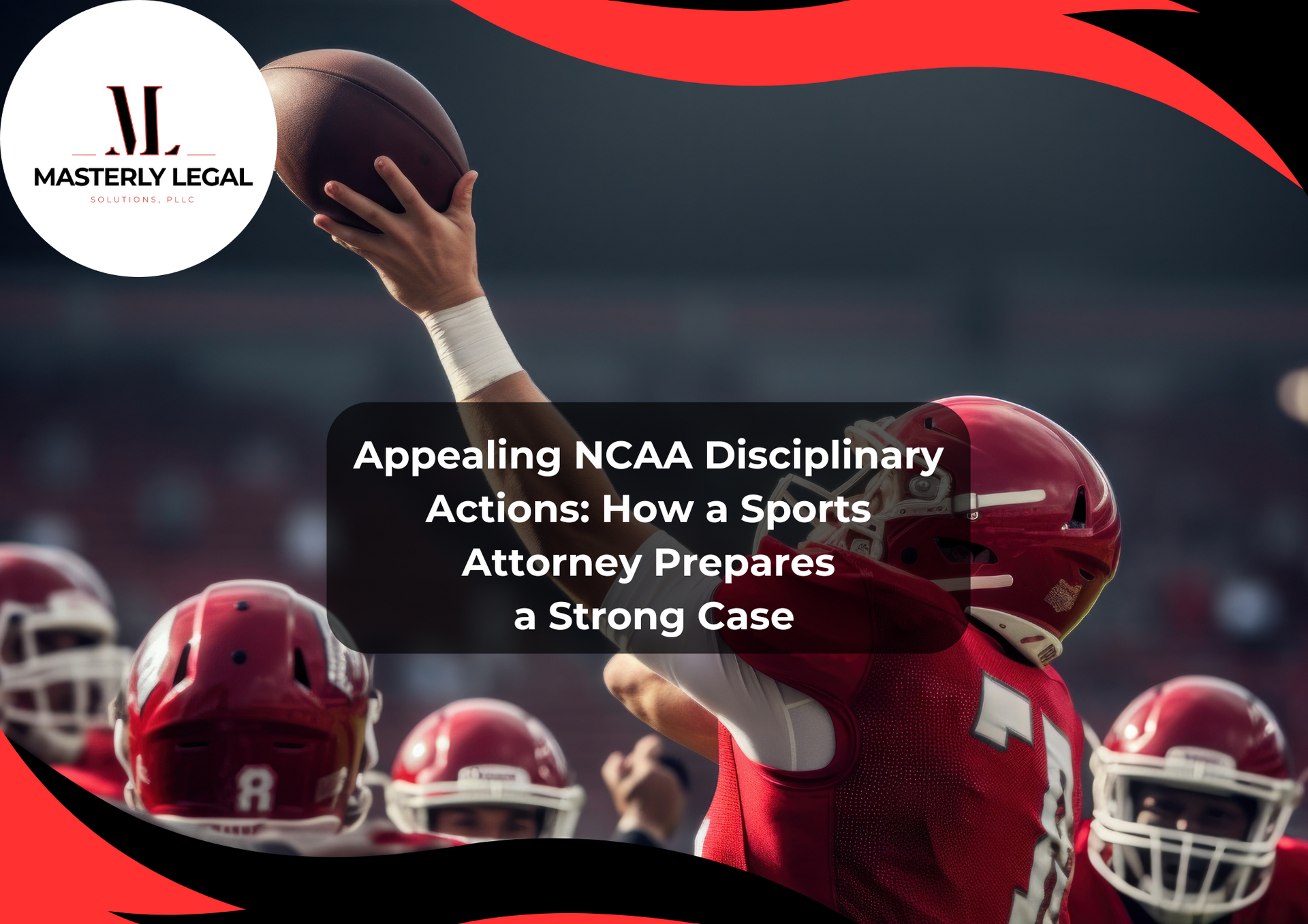Important Techniques for Protecting College Instructors and Administrators
College professors and administrators often face a range of legal challenges, from employment disputes to compliance with federal and state law. Navigating these complexities requires a strategic approach and professional legal counsel to protect their careers and the institutions they serve. At Masterly Legal Solutions, we bring extensive experience in higher education law, helping our higher education clients address these critical issues effectively.
Understanding the Legal Landscape in Higher Education
The higher education sector is governed by intricate regulations and policies. From faculty tenure disputes to employment discrimination claims, professors and administrators must be equipped to handle various legal and practical issues.
Key Challenges Faced by Higher Education Institutions
Professors and administrators may encounter legal challenges related to:
- Employment Discrimination: Age, gender, or disability discrimination claims can disrupt careers and campus culture.
- Sexual Misconduct Allegations: These cases require thorough investigations and often attract public scrutiny.
- Academic Misconduct: Faculty members accused of unethical behavior may face severe professional consequences.
- Regulatory Compliance: Adhering to federal and state law, including the Disabilities Act and the Education Amendments, is essential for academic institutions.
The Role of Higher Education Attorneys
Higher education attorneys offer invaluable support in these matters, advising institutions and defending individual faculty members. Legal expertise in areas like collective bargaining, student handbooks, and employment contracts ensures that all parties receive fair representation.
Essential Strategies for Defending Professors and Administrators
Defending professors and administrators requires a proactive, multifaceted approach. Below are key strategies to navigate legal challenges effectively:
1. Partnering with Experienced Attorneys
Having a legal team with extensive experience in higher education law is critical. Our higher education team understands the unique challenges faced by professors and administrators, from academic misconduct to faculty tenure disputes. We represent clients with professionalism and dedication.
2. Conducting Thorough Investigations
When facing allegations, such as sexual misconduct or employment discrimination, thorough investigations are paramount. Our experienced attorneys ensure:
- All evidence is collected and preserved.
- Witnesses are interviewed impartially.
- The rights of the accused are protected.
3. Ensuring Regulatory Compliance
Educational institutions must maintain compliance with regulations such as:
- The Family Educational Rights and Privacy Act (FERPA) for handling student records.
- Disabilities Act provisions for equal opportunity.
- Unrelated Business Income Tax (UBIT) regulations for financial activities.
Non-compliance can lead to penalties or reputational damage, underscoring the need for legal counsel.
4. Navigating Employment Contracts and Faculty Tenure
Employment contracts often serve as the first line of defense for professors and administrators. These documents outline rights, responsibilities, and protections. Disputes over tenure or employment terms require legal expertise to ensure fair outcomes.
5. Addressing Collective Bargaining Issues
For professors and administrators at institutions with union representation, collective bargaining can influence employment terms. We provide support to negotiate fair agreements and resolve disputes.

Legal Services Tailored for Higher Education Clients
At Masterly Legal Solutions, we offer a comprehensive range of legal services to support professors, administrators, and institutions. These include:
- Strategic Planning: Proactively addressing legal risks.
- Regulatory Compliance Audits: Ensuring adherence to federal and state law.
- Representation in Complex Litigation: Defending against lawsuits involving employment discrimination, intellectual property disputes, and more.
Intellectual Property Protections
Professors and administrators involved in research or academic programs often face intellectual property challenges. Protecting their work and ideas is crucial for maintaining professional integrity and innovation.
Building Strong and Lasting Relationships
We value the relationships we build with our institutional clients, whether they are private colleges, large research universities, or small liberal arts colleges. Our thorough understanding of the higher education industry ensures that we can:
- Advise institutions effectively.
- Represent clients in federal and state courts.
- Assist institutions with navigating the complexities of higher education law.
Why Choose Masterly Legal Solutions?
Our legal practice is rooted in extensive experience and a commitment to excellence. We bring:
- A proven track record in supporting institutions of higher education.
- Expertise in handling data security incidents and regulatory compliance issues.
- A deep understanding of faculty rights and campus culture.

How We Can Help You
Whether you are a faculty member facing employment challenges or an administrator navigating regulatory requirements, Masterly Legal Solutions is here to provide tailored legal services. Our experienced attorneys have helped numerous professors and administrators secure favorable outcomes in complex legal matters.
Legal Representation for College Administrators: Navigating Challenges in Higher Education
College administrators at postsecondary institutions, including private universities and community colleges, face legal complexities ranging from age discrimination claims to compliance with the False Claims Act. Legal guidance is crucial, especially for general counsel and university attorneys managing high-stakes issues such as disputes involving employee benefits or conflicts with government agencies. Institutions often rely on experienced legal teams to address cases involving former students, protect the institution’s reputation, and maintain compliance with NCAA regulations.
For colleges and universities, including private higher education institutions, the support of seasoned attorneys familiar with corporate law and higher education is vital. These professionals assist with legal concerns extending to student affairs, partnerships with financial institutions, and interactions with school groups. Whether addressing day-to-day matters or large-scale investigations, specialized legal representation ensures administrators can focus on fostering a thriving academic environment.
Advocating for College Faculty and Administrators: The Role of Higher Education Legal Counsel
When professors and administrators face legal challenges on a college campus, the expertise of a higher education lawyer is indispensable. These attorneys work closely with college and university clients to address disputes involving employment contracts, academic freedom, and compliance with the National Labor Relations Board regulations. They also provide guidance on issues arising in private institutions, where governance structures may differ significantly from public colleges.
In addition to defending individual faculty members, legal counsel collaborates with corporate clients and bond counsel to manage financial and operational risks that may impact the institution. Whether addressing matters of NCAA compliance for athletics programs or navigating guidelines from a national association, these strategies ensure alignment with institutional policies and state or federal laws. Their role often extends into human resources, helping colleges create policies that protect staff while promoting equitable workplace practices.
Comprehensive Legal Support: The Role of a Higher Education Team and General Counsel
A higher education lawyer plays a critical role in addressing the unique legal needs of colleges and universities. Serving as part of a dedicated higher education team, these professionals provide tailored advice on compliance, governance, and risk management. They often collaborate with general counsel to ensure that institutions navigate complex legal landscapes with confidence.
From academic policy disputes to institutional restructuring, a robust higher education team is equipped to handle diverse challenges. Whether drafting strategic policies or addressing urgent legal matters, the partnership between external counsel and general counsel ensures that higher education institutions are prepared to thrive in a highly regulated environment.

Navigating Complex Legal Challenges for Higher Education Institutions
Legal issues in higher education institutions are often multifaceted, requiring expert guidance from specialized legal teams. From student affairs and compliance to governance and employment law, these institutions face unique challenges that demand a deep understanding of the higher education landscape.
A dedicated higher education team works alongside general counsel to provide strategic solutions that align with institutional goals while adhering to regulatory requirements. Whether addressing policy development or managing crises, these collaborative efforts ensure that higher education institutions operate effectively and maintain their commitment to academic excellence.
Tailored Legal Solutions for Higher Education Clients
Serving a diverse array of higher education clients, legal teams specializing in this field provide comprehensive support for colleges, universities, and other academic institutions. These services are designed to address the specific needs of institutions, ranging from policy creation and compliance to dispute resolution and risk management.
For higher education clients, navigating the complexities of governance, student affairs, and regulatory compliance is a constant challenge. By working closely with general counsel and institutional leadership, legal professionals ensure that these academic organizations remain focused on their educational missions while effectively managing legal and operational risks.
Protecting Intellectual Property in Colleges and Universities
In the realm of colleges and universities, intellectual property plays a crucial role in fostering innovation and academic advancement. From groundbreaking research and patented technologies to copyrighted course materials, institutions must safeguard their intellectual assets to maintain a competitive edge and ensure proper recognition for creators.
Legal teams specializing in higher education work with colleges and universities to develop policies that protect intellectual property rights while promoting collaboration among faculty, students, and external partners. These strategies not only prevent disputes but also enable institutions to capitalize on their innovations, ensuring that academic contributions have a lasting impact on the broader community.
Legal Challenges Facing Colleges and Universities Today
Colleges and universities operate in a dynamic legal environment, where they must navigate complex issues related to governance, compliance, and intellectual property. These institutions often face challenges such as managing employment disputes, ensuring student safety, and adhering to federal regulations.
Legal counsel plays a critical role in helping colleges and universities address these concerns while maintaining their commitment to education and research. From supporting faculty through legal disputes to guiding administrative policies, attorneys provide essential services that enable institutions to focus on their academic missions while mitigating risks and liabilities.
Unique Legal Considerations for Private Higher Education Institutions
A private higher education institution faces distinct legal challenges compared to its public counterparts. These institutions often operate under different governance structures and funding mechanisms, requiring tailored legal strategies to address their needs.
From managing donor agreements to protecting intellectual property rights, legal teams play a crucial role in ensuring that a private higher education institution remains compliant with regulations while fostering innovation and growth. Additionally, these institutions often rely on endowments and private funding, making financial oversight and risk management critical components of their operations.
Legal Support Tailored for Private Universities
A private university encounters unique challenges that require specialized legal expertise. Unlike public institutions, private universities operate with greater autonomy, allowing them to establish distinct policies and procedures. However, this autonomy also brings additional responsibilities in areas such as compliance, governance, and donor relations.
Legal teams assist a private university in navigating complex issues such as employment contracts, intellectual property rights, and student affairs. By addressing these challenges proactively, private universities can focus on delivering high-quality education while safeguarding their institutional reputation and resources.

The Role of Student Handbooks in Institutions of Higher Education
Institutions of higher education rely on well-crafted student handbooks to establish clear expectations and guidelines for their academic communities. These handbooks serve as essential tools for communicating institutional policies, student rights, and responsibilities, covering areas such as academic integrity, campus conduct, and grievance procedures.
By ensuring that student handbooks are comprehensive and compliant with legal standards, institutions can mitigate risks and foster a safe and inclusive learning environment. Legal counsel often works with administrators to review and update handbooks, ensuring alignment with evolving regulations and the institution’s mission. This proactive approach strengthens accountability and promotes a positive campus culture.
Navigating Employee Benefits in the Higher Education Industry
In the higher education industry, managing employee benefits presents unique challenges, especially for academic institutions striving to attract and retain top-tier faculty and staff. Competitive benefits packages, including health insurance, retirement plans, and tuition assistance, are essential for fostering a supportive work environment.
Legal teams specializing in the higher education sector collaborate with financial institutions to design and implement benefits programs that comply with regulations while meeting institutional goals. For an academic institution, aligning these benefits with its mission not only enhances employee satisfaction but also strengthens its ability to recruit and retain exceptional talent in a competitive market.
Strategic Legal Support for the Higher Education Sector
The higher education sector operates in a multifaceted legal environment, requiring institutions to address a wide range of challenges, from regulatory compliance and governance to employment law and intellectual property. With evolving policies and expectations, legal counsel plays a vital role in supporting colleges, universities, and other academic entities.
For stakeholders in higher education, proactive legal strategies ensure the smooth functioning of operations, safeguard institutional reputation, and align policies with federal and state regulations. Whether drafting contracts, managing disputes, or guiding compliance efforts, legal teams empower institutions to focus on their core mission of education and innovation.

Legal Compliance for Institutions of Higher Education: A Critical Need
Institutions of higher education face a diverse array of legal challenges that demand meticulous attention to compliance and governance. From managing student affairs and employment disputes to adhering to federal regulations, these institutions require robust legal frameworks to operate effectively.
Legal counsel plays a pivotal role in assisting institutions of higher education with navigating these complexities. By addressing issues such as Title IX compliance, intellectual property protection, and faculty contract negotiations, attorneys help ensure that these institutions maintain their focus on delivering high-quality education while minimizing legal risks. This proactive approach safeguards their reputation and supports their long-term goals.
Legal Considerations for Postsecondary Institutions and Private Colleges in Corporate Law
Postsecondary institutions, including private colleges, face a range of legal challenges that often intersect with corporate law. These challenges include governance issues, contract negotiations, and compliance with financial regulations. For private colleges, which often operate independently of state funding, managing endowments and donor agreements adds another layer of complexity.
Legal teams specializing in corporate law assist these institutions by providing guidance on matters such as mergers, acquisitions, and partnerships. Additionally, they ensure that postsecondary institutions remain compliant with federal and state regulations while pursuing innovative strategies to sustain and grow their academic missions.

Responding to Data Security Incidents: Guidance for Higher Education Institutions
For higher education institutions, a data security incident can have significant consequences, from financial losses to reputational damage. Membership in a national association of colleges and universities can provide valuable resources and best practices for managing these incidents effectively. Institutions must have a thorough understanding of data protection laws, breach notification requirements, and cybersecurity protocols to mitigate risks.
Legal counsel specializing in higher education collaborates with these institutions to develop robust incident response plans. This proactive approach not only ensures compliance with regulations but also strengthens their ability to respond swiftly and effectively in the event of a breach, safeguarding both institutional integrity and stakeholder trust.
Ensuring NCAA Compliance: A Priority for College Athletic Programs
Maintaining NCAA compliance is essential for colleges and universities to uphold the integrity of their athletic programs. From recruitment policies to academic eligibility requirements, institutions must navigate a complex web of regulations to avoid sanctions and ensure fair competition.
Legal teams with expertise in NCAA compliance assist athletic departments by providing guidance on rule interpretations, drafting policies, and managing investigations. By staying proactive and informed, institutions can align their athletic programs with NCAA standards while protecting the rights of student-athletes and preserving their program's reputation.
The Role of Bond Counsel in Higher Education Financing
For colleges and universities, securing funding for infrastructure and development projects often involves issuing bonds. Bond counsel plays a critical role in this process, ensuring that all legal and financial aspects of bond issuance comply with federal, state, and institutional regulations.
In the higher education sector, bond counsel provides expertise in drafting bond documents, managing tax compliance, and advising on disclosure requirements. Their guidance ensures that institutions can secure necessary funding for campus expansions, facilities upgrades, and other vital projects while minimizing financial and legal risks. This specialized support is essential for maintaining the fiscal health and growth of academic institutions.
Contact Us for a Free Consultation
If you are a professor or administrator facing legal challenges, don’t navigate these issues alone. Contact Masterly Legal Solutions at (972) 236-5051 for a free consultation. Our team of experienced attorneys is ready to answer your questions and provide the expert guidance you need.
Disclaimer: This article is for informational purposes only and does not constitute legal advice. For specific legal guidance, please consult directly with our legal professionals.


Looking for Legal & Business Solutions? Contact Us Now
Fill in the form or call us to set up a meeting












